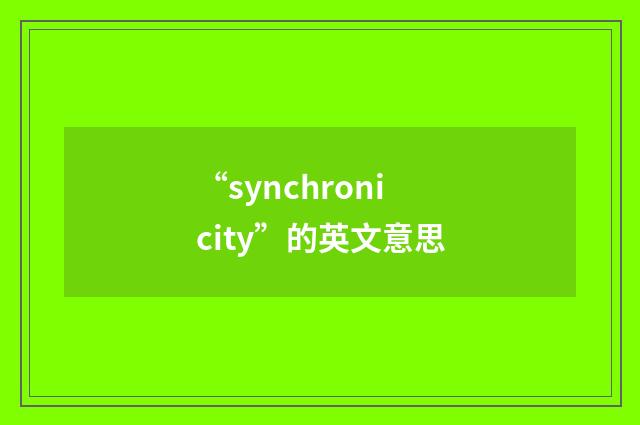| 单词 |
synchronicity |
| 释义 |
synchronicity|ˌsɪŋkrəˈnɪsɪtɪ|
[f. synchronic a. + -ity.]
The name given by the Swiss psychologist, C. G. Jung (1875–1961), to the phenomenon of events which coincide in time and appear meaningfully related but have no discoverable causal connection.
1953Jrnl. Soc. for Psychical Res. XXXVII. 28 Synchronicity, he [sc. Jung] explains, is not just synchronousness. In a ‘synchronicity phenomenon’, as he uses the phrase, two contemporaneous events are linked together in a meaningful manner. 1955R. F. C. Hull tr. Jung & Pauli's Interpretation of Nature & Psyche i. 27, I have picked on the term ‘synchronicity’ to designate a hypothetical factor equal in rank to causality as a principle of explanation. 1963Punch 25 Dec. 910/2 Hauntings..magical coincidence (‘synchronicity’) the lot. 1974Sci. Amer. Jan. 113/2 The Wilhelm-Baynes volume includes the famous foreword by Jung in which he explains the oracular power of the I Ching by his theory of ‘synchronicity’. 1980R. L. C. Fitz Gibbon Rat Report vi. 112 A thought-transference has also no mass, but very considerable energy and therefore ‘travels’..through the time element called synchronicity. |

英语词典包含277258条英英释义在线翻译词条,基本涵盖了全部常用单词的英英翻译及用法,是英语学习的有利工具。
相关内容:
相关热词搜索:synchronicity英英词典英英释义英语词汇意思用法释义英语
